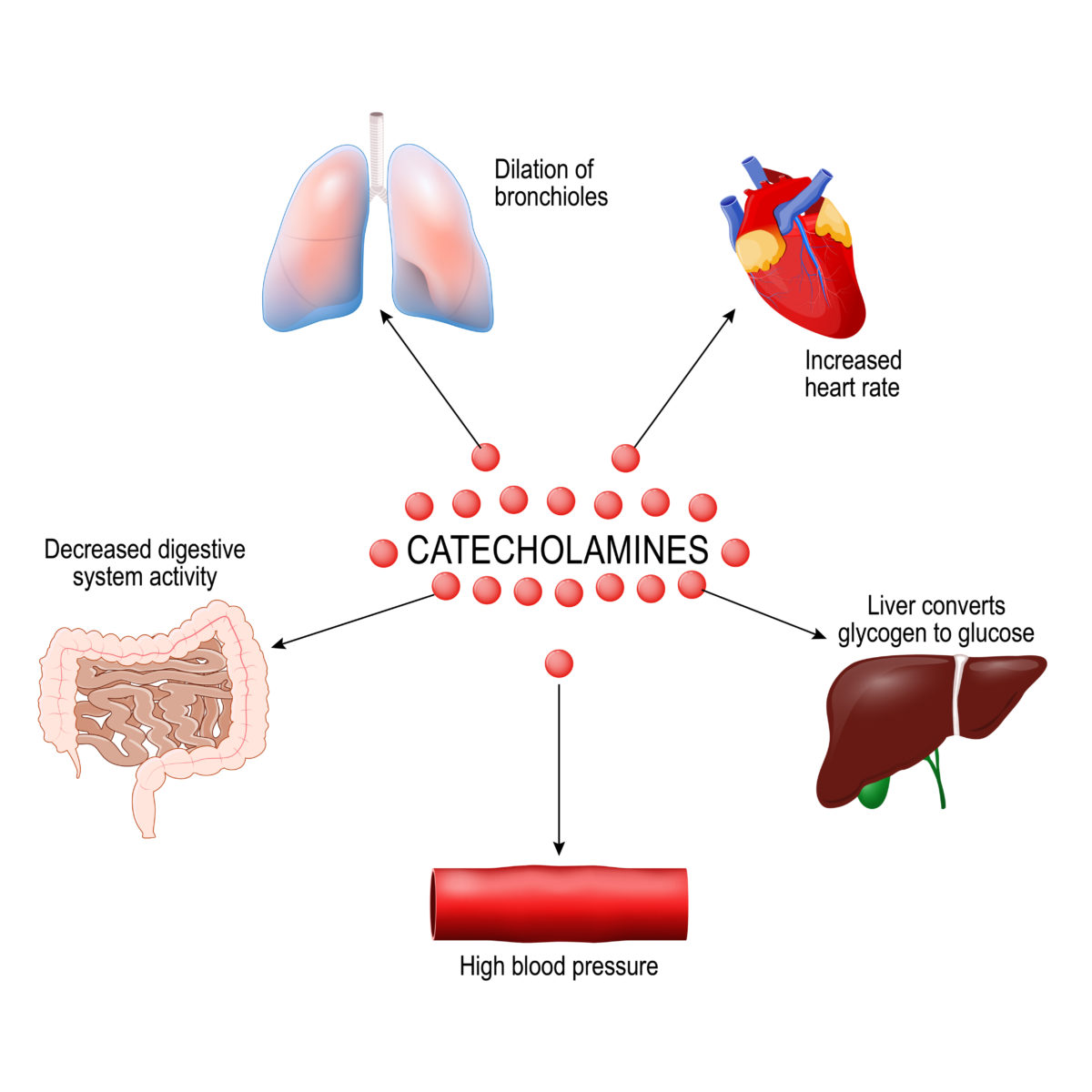8 Signs You’re Overtraining
Check out my client Khalid’s transformation where he gained a whole bunch of muscle.
 Some people don’t believe that overtraining is real. But the scientific research tells a completely different story.
Some people don’t believe that overtraining is real. But the scientific research tells a completely different story.
Overtraining is real and its bad. I know this first hand because I’ve run into overtraining a couple times myself.
Some of the times it was more obvious because I was training 2 to 3 hours each day which lead to a torn bicep, and other times it wasn’t so obvious.
The fact of the matter is you absolutely need to push yourself to see results from your workouts because undertraining is very real as well and maybe even more common than overtraining.
When you don’t push yourself enough while working out, and you don’t progressively overload with a higher training volume over time the level of stress you’re putting on your body isn’t enough to improve.
The sweet spot for seeing results is right between undertraining and overtraining. But if you cross that line, you might be working harder than ever
but instead of seeing improvements you’ll be slowing down your progress, causing overuse injuries, creating hormonal imbalances,
and if you continue to overtrain for too long you can gain body fat, lose muscle mass, and even lower your sex drive.
Long story short overtraining isn’t only caused by working out too much but instead it’s the combination of putting too much physical, psychological, and environmental stress on your body leading to problems that you definitely want to avoid,
and luckily there are some signs and symptoms of overtraining, but if you don’t know them you may not even notice.
So today I want to give you guys 8 signs that you should look out for to ensure that you’re not overtraining.
And make sure that you stick with me through this video because after I give you these 8 signs to look out for I’ll also give you 8 ways to guarantee that you never overtrain again.
I want to start with one of the most obvious signs which are a decrease in your performance levels.
Now if you’re working out really hard and you’re workouts typically go well, but then you have one or two bad days
where you feel weaker and tired during your workouts this is perfectly normal and it’s probably not safe to assume that you’ve hit the point of overtraining.
On the other hand, if you consistently try to complete intense workouts to see some progress, but instead you’re losing strength, endurance,
or your repeatedly failing to complete your workouts you might be crossing that line.
If you are overtraining it’s resulting in decreased performance you’ll experience things like a noticeable change in your grip strength,
the weights feeling heavier on your joints and bones, less stability and precision with movement patterns, and a decrease in explosiveness.
If you consistently experience a couple of these symptoms during your workouts you might see much better results by backing off rather than working harder.

It may seem counterintuitive that rest will help you make progress,
but the best athletes, strongmen, and bodybuilders all know that training smarter will get you much further than always training harder.
Another sign you’ll experience is feeling really sore for really long lengths of time after your workouts.
This is not to be confused with doms or delayed onset muscle soreness, which is that sore and sometimes even painful feeling that’ll usually start the day after training, usually peaking in intensity by day 2, and it can last up to three days.
The process of Doms is perfectly normal and is usually caused by either trying unfamiliar exercises, or shocking your body with different training styles like drop sets, supersets, and giant sets, or from rapidly increasing your training volume.
However, if you’re not really doing anything new and you’re feeling a soreness that’s different than the usual soreness you feel from training.
The type of soreness lingers for a few extra days and it even might be a little more painful than usual then you may be running into this problem.

If the soreness is so great that it feels like it’s back to the very first time that you lifted weights and you feel like you can’t lift your arms up to brush your hair
or you can’t walk up the stairs without pulling yourself up by the railing for a whole week then you may have overdone it.
Remember if you’re a beginner you’ll feel a lot more soreness from your workouts, but if you’ve been at it for some time you shouldn’t be sore for extensively long lengths of time.
Let’s move on to the next big sign which is the sudden loss of motivation to train at all. Obviously, if you’ve been a couch potato for the last 6 months and you don’t feel like working out you’re not overtraining.
However, if you normally look forward to your workouts but now you have no desire to even show up to the gym, then that could be a problem.
Even though overtraining is largely felt physically like I said earlier it’s caused by an excess accumulation of physical, psychological, emotional, and environmental stress.
All of this can definitely lead not only to feeling bad physically while working out, but it can also affect you psychologically making you feel like you have no motivation to workout at all.

Eventually, this can even lead to depression if you don’t recognize what’s stressing you and re-evaluate your approach.
Another symptom is constantly getting sick even though you’re living a healthy lifestyle and treating your body well.
If you’re consistently exercising, eating a well-balanced diet, you’re getting enough sleep, and you’re not drinking alcohol or you’re only drinking it in moderation you shouldn’t be getting sick all that often.
However, if you’re following all these healthy habits, but you’re still constantly sniffling or coughing, catching one cold after another, this could be another sign of overtraining.
Of course, you might’ve just gotten unlucky and you caught a lingering cold that won’t go away, so you will want to make sure that you’re experiencing frequent illness in combination with some of the other symptoms of overtraining as well.
Next, we have the symptom of flat looking muscles and maybe even full out muscle loss. This can also be coupled with more of a bloated look from excess water retention.
If you’re training correctly, you have a good diet, and you’re balancing the training with proper amounts of rest your body will be in the ideal state to build muscle.

And it’s during your rest and recovery period that those muscles will heal, rebuild, and grow. If you’re overtraining you’re not giving your body enough time to recover from the amount of stress being placed on it.
You’re essentially doing more break down then you are rebuilding. A reduction of protein synthesis combined with increased protein breakdown leads to muscle loss and even worse a full out injury.
Think about it if you break down more muscle than you repair eventually in that weakened state you set yourself up for an overuse injury,
which is actually the next sign to look out for.
Chronic or nagging injuries that either doesn’t go away or are constantly reoccurring again and again.
One study found a direct linear relationship between hours of exercise and injury, demonstrating that higher volumes and intensities of training are correlated with higher overuse injury risk.
Now, of course, you can get injured for other reasons. You could have bad form, you might not be eating a good diet, and you may have run into something known as pattern overload.

Pattern overload refers to an injury caused by repetitive motion or movement pattern. This usually happens when you never change up your workouts, or if you’re constantly repeating the same exact exercises over and over again month after month.
If you think you have a good diet, good form, and you’re switching up your workouts but your still constantly getting overuse injuries then this may definitely be a sign that you’re overtraining especially if you’re experiencing some of these other symptoms.
For example, another one you can feel is just general fatigue, sluggishness, and feeling irritable throughout the day.
This is the result of overworking your sympathetic nervous system and in the process, you’re decreasing testosterone levels and increasing cortisol levels way too high.
When you increase cortisol for a short length of time while working out that’s perfectly normal, those elevated levels of cortisol will drop right back down soon after you’re done exercising.

However if you constantly experience so much stress from working out as well as other external factors, those cortisol levels continuously stay elevated for long lengths of time leaving you feeling tired, moody, sluggish, and easily annoyed all day long.
Let’s move on to the last symptom of overtraining so we can jump right into the best prevention tactics to ensure this doesn’t ever happen to you.
The last sign is Insomnia and restlessness. This has to do once again with your sympathetic nervous system.
If you’re pushing your body too hard, your nervous system can become over-stimulated. And due to the overproduction of stress hormones, you might not be able to wind down and completely relax when trying to get to sleep.
This will make it harder to fall asleep and stay asleep making sleep much less effective ultimately leading to a vicious cycle of less recovery and more fatigue.
So those are the signs and symptoms now I want to go over 5 guaranteed ways to prevent this from happening to you.
First is to ensure that you’re eating properly and that you’re taking in the right amount of micro and macronutrients based on your activity level.

Now I’m not just talking about eating enough protein. Of course, you want to aim for around 0.8 to 1 gram of protein per pound of body weight and you want to make sure that you’re avoiding processed foods to keep inflammation throughout your body low.
But studies also show that a lack of fruit and vegetables can also lead to lower rates of muscle recovery, so make sure that you’re eating a well-balanced diet full of a variety of healthy sources of protein, carbs, fats, fruits, and vegetables.
Next, you need to make sure that you’re getting enough sleep because that’s when your body repairs and recovers the most.
Also, another good reason to get more sleep because studies who that getting less than 6 hours of sleep per night is associated with a higher risk of death, illness, and chronic disease.
That should be enough motivation alone to try to get 6 to 8 hours of sleep every night no matter what excuses you have.
The third way to prevent overtraining is to ensure that you’re not going overboard with your workouts.
You can go overboard by exercising too frequently, by doing too many sets per body part, and by going too heavy or too hard too often.

If you’re just doing one of these things you can get away with it, but if you combine heavyweight, with a lot of sets, and you’re doing it too often you’ll definitely set yourself up for overtraining.
And these variables will change from person to person, so you will have to listen to your body. Now it’s important to mention that intense exercise isn’t the only thing that can cause this.
Doing too much low-intensity cardio can also cause over taxation of your sympathetic nervous system especially when combined with other forms of training.
If you’re starting to feel some of the symptoms of overtraining make sure you re-evaluate your program.
Next, you want to lower stress levels. This may not sound that important for some of you, but the amount of stress your body can physically handle from your workouts without overtraining is highly influenced by how much stress you’re getting from other places.
If you’re going through some psychological or emotional stress caused by crazy deadlines at work, relationship problems, or just general anxiety you may want to ease up with your workouts a little while you’re going through that.
Now I’m not saying you want to undertrain but maybe substitute a heavy lifting day for yoga or stretching. external stress.

Setting aside some time for meditation can also help you manage external stress.
The final and my favorite way to prevent overtraining is to occasionally incorporate a deload week or take a week off entirely.
A deload week consists of reducing either training intensity by significantly lowering the weight load that your lifting or by decreasing the volume by lowering the number of sets, reps, or exercises performed.
I like to lower both volume and intensity, so during a deload week, my chest workout might just be 3 sets of bench press with a half weight that I normally lift. And that would be it.
Or I just do 3 sets of 20 reps of pushups and that’s it. I like to do this once every 6 to 12 weeks, and even if you decide to take the entire week off instead of deloading you’ll probably be surprised when you come back stronger than you were before.
That’s it guys, I really hope I’ve helped you out with identifying the signs of overtraining, and I hope you’ve learned some strategies to prevent it from ever happening to you.
Also for those of you that are looking for a done for your program that will help you burn fat & build muscle faster than you ever have before visit my website where we’re running challenges designed to help you get more results than you ever have in only 6 weeks. You get a workout plan, a custom diet plan, as well as an accountability coach to help mentor and guide you through the entire process.
This takes all the guesswork out and helps you hit your goals without any of the grueling trial and error that just wastes your time and causes frustration. On average the clients that have a goal of losing body fat during our 6-week challenge are losing 20 pounds, or 5 percent of their body fat and those that do the muscle building program are gaining 5 percent lean mass in only 6 weeks. So it’s true you can highly accelerate your progress by training smarter.
My passion for fitness began when I was 14 years old. I naturally fell in love with training and haven’t stopped since. At 18 years I acquired my first personal training certification from ACE after which I opened my first of 3 transformation studios in 2011. I love to share my knowledge through personal training, my online courses, and youtube channel now with over 3,000,000 subscribers! I can happily say that we've helped over 15,000 people get in great shape over the years. I'm always here for my customers so if you need help don't hesitate to send your questions to support@gravitychallenges.com
Read more at:
Read more at:
Over training:
https://www.ncbi.nlm.nih.gov/pmc/articles/PMC3435910/
Too much Volume Associated With Injury:
https://bjsm.bmj.com/content/48/4/287
Diet’s Without Fruit and Veggies Cause Slower Muscle Recovery
https://bmjopensem.bmj.com/content/1/1/e000063
Not enough sleep increases mortality:
https://warwick.ac.uk/newsandevents/pressreleases/short_sleep_increases/

